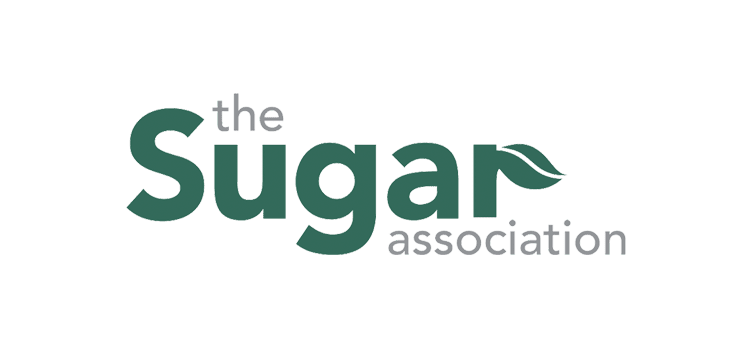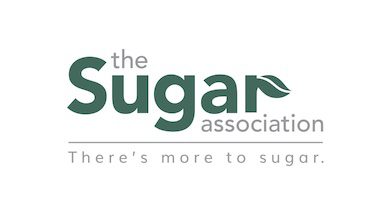

January 7, 2016
January 7, 2016, Washington, DC — The Sugar Association issued the following statement in response to the release of the 2015 Dietary Guidelines for Americans:
“Everyone recognizes it is important for Americans to eat healthy diets within caloric needs but strong scientific evidence should support all dietary recommendations. Therefore, the Sugar Association is disappointed that despite a lack of scientific evidence, the 2015 Dietary Guidelines for Americans recommend an intake limit or target for “added sugars” of no more than 10 percent of daily calories.
“The Dietary Guidelines for Americans are too important not to get them right. It was our hope the Secretaries of Health and Human Services and the U.S. Department of Agriculture would maintain the scientific integrity of the Dietary Guidelines process and reject the “added sugars” recommendations in the controversial 2015 Dietary Guidelines Advisory Committee (DCAG) report that were based on weak science of low evidentiary value.
“We maintain these “added sugars” recommendations will not withstand the scrutiny of a quality, impartial evaluation of the full body of scientific evidence. As with past examples of dietary guidance not based on strong scientific evidence, such as eggs, the “added sugars” guidance will eventually be reversed. The lack of scientific rigor in this process has and will continue to result in consumer apathy, distrust and confusion.
“We are pleased that Congress recognized the need to ensure consumer trust and maintain the scientific integrity of the Dietary Guidelines by fully funding a mandate that the Institute of Medicine review the entire Dietary Guidelines process. The Sugar Association calls for the development of a standardized scientific process that ensures consistency in the scientific evaluation of all dietary components, which will mitigate dietary guidance based on bias, agendas and beliefs.”
In its comments submitted earlier this year to the Secretaries, the Sugar Association expressed a number of specific concerns with the 2015 DGAC’s report, outlined below:
The 2015 DGAC had no carbohydrate experts;
The 2015 DGAC bypassed the established Nutrition Evidence Library (NEL) review process and, instead, subjectively selected published systematic reviews. This raises serious concerns that the Committee bypassed a review of the full body of science and instead selected science to support its pre-determined conclusion;
The 2015 DGAC conclusions contradict major, authoritative, evidence-based reviews on “added sugars” intake and health outcomes;
The 2015 DGAC relied heavily on observational data to inform conclusions. Epidemiological studies, and even meta-analyses of RCTs, are considered observational data and their findings should be interpreted as associations because they do not provide proof of cause and effect;
The 2015 DGAC provided no credible scientific evidence to support its recommendation to limit “added sugars” to 10 percent of total energy intake. The science cited by the DGAC actually indicates that any observed effect of “added sugars” on body weight is a function of total calories, from all sources, and not any unique obesogenic property of “added sugars.” The 2015 DGAC, contrary to previous committees, chose to ignore this fact;
The use of hypothesis-based dietary patterns studies to link or associate dietary components with serious disease outcomes or set intake recommendations is not a valid scientific methodology;
Food pattern modeling does not have the scientific underpinning to support “added sugar” intake recommendations. The 2010 Dietary Guidelines specifically state, USDA Eating Patterns “have not been specifically tested for health benefits.”

January 14, 2025
January 14, 2025 (Washington, D.C.) – The following reaction statement is attributable to Sugar Association President and CEO Courtney Gaine, PhD, RD: “The Sugar Association supports transparency, but this draft label offers only the illusion of transparency – it entirely leaves out total calories and the use of industrial additives like artificial sweeteners. In fact, […]

December 19, 2024
December 19, 2024 (Washington, D.C.) – The following reaction statement is attributable to Sugar Association President and CEO Courtney Gaine, PhD, RD: “The Sugar Association supports the Dietary Guidelines recommendation to limit added sugars to 10% of total calories, but the new “healthy” definition goes well beyond that recommendation and arbitrarily excludes many foods containing […]

December 10, 2024
December 10, 2024 (Washington, D.C.) – Americans feel more confident about managing their sugar intake when they know the Dietary Guidelines recommendation to limit added sugars to less than 10% of their total calories, and the Sugar Association welcomes the Dietary Guidelines Advisory Committee (DGAC) reaffirmation of that guideline. The added sugars guideline is a […]
© 2025 The Sugar Association, Inc. All rights reserved.
Get Social with #MoreToSugar